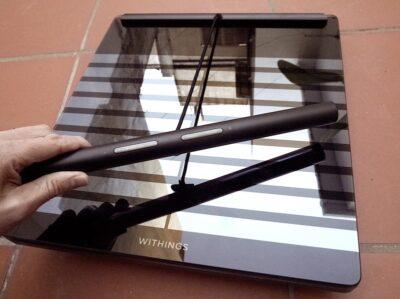
Given all the ongoing issues that Google Fitbit Aria Scale users have been experiencing, I see many had moved to Withings scales. So, it was interesting to read this review as I’m considering a similar move in future.
The review certainly shows some issues, some of which can be explained through reliability of algorithm reasons, but it does seem that Withings users have generally been happier than Google Fitbit users (many of whom can only now get readings for one person on their scales).
When a scale reads done to 50g of accuracy though, it is true that you can’t get too hung up about the change of measurements throughout the day, and you need to look at the trends over days whilst keeping the measurement conditions as constant as possible.
Withings relies on sending a tiny electrical charge through the user’s body to measure arterial stiffness, too. It does this by tracking the time it takes for a wave that’s created in the blood as the heart beats to arrive at the foot — a measure called Pulse Wave Velocity (PWV). The app records and tracks a speed value for PWV, to monitor changes over time. It also provides a comparative rating for “Vascular Age” (vs the user’s age) — charting whether it falls in the normal, not normal or optimal range.
Another flagship feature of Body Scan — one of two that’s been approved by medical device regulators in the US and Europe — is a 6-Lead Electrocardiogram (ECG) which can detect AFib (aka atrial fibrillation), a common cardiac rhythm disturbance that can cause stroke and heart failure.
See the review at https://techcrunch.com/2023/11/07/withings-body-scan-smart-scale-review/
Comments